
The disappearing execs of Mashregh News
Mashregh’s problematic content is the brainchild of shadowy IRGC management

Mashregh’s problematic content is the brainchild of shadowy IRGC management

How a shadowy organization drives the IRGC’s media agenda

In the following two-part series of articles, we unwrap the IRGC’s three major media outlets: Tasnim and Fars news agencies, as well as the daily newspaper Javan.

Media orgs’ intentionally opaque ownership structure points to the IRGC

In the following two-part series of articles, we unwrap the IRGC’s three major media outlets: Tasnim and Fars news agencies, as well as the daily newspaper Javan.

China’s CNPC and SINOPEC have developed their foothold in Iran’s oil and gas sector through a network of subsidiaries.

China’s National Petroleum Corporation (CNPC) and SINOPEC have acquired various contracts for the development of Iran’s oil & gas fields.

Chinese companies have been gaining exclusive access to some of Iran’s most productive oil & gas fields for the past two decades, despite limited efficiency at developing new projects, and to the long-term detriment of Iran’s ability to profit from its own energy reserves.

With protests mounting, officials turn to Beijing-backed tech companies that use local subsidiaries to sell a dystopian future

Corruption is Khamenei’s way of controlling the government and seizing more power.

An analysis of official data shows how top-performing companies are linked to bonyads, the government or both
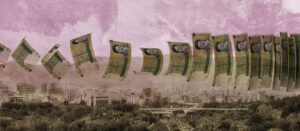
Khamenei’s office puts up obstacles to transparency to protect its own interests
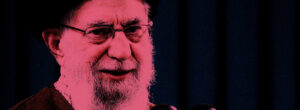
As Iran’s economy struggles, Khamenei’s office is founding new companies in tech, finance and pharma
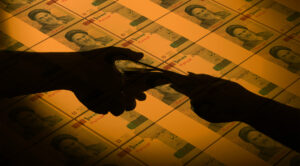
An insider’s testimony about the genesis of bonyads and the dynamics of Iran’s pseudo-privatization.
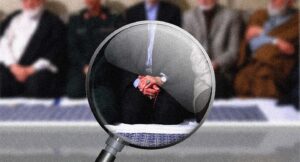
Why this essential term must be redefined for an Iranian context.
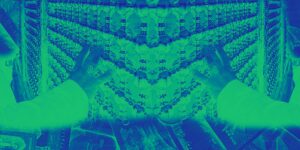
A bill addressing the leading cause of corruption has languished in the Majles for over two years.

The lives, business interests, and influential connections of the late president’s five children.

The late president established a corrupt system that continues to benefit elite clans, including his own.

The late president’s youngest son and his wife, Maryam Salari, are at the heart of an extensive business network.
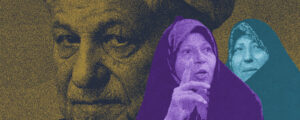
The two daughters of the late president have wide-ranging business interests, based in both inheritance and marriage.

The late president’s middle son, now serving a 10-year jail sentence, was mired in business scandals for decades.

Despite his links to crime and corruption, Mohsen Rafiqdoust controls prestigious private schools.
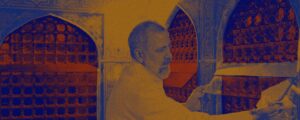
The custodians of Mashhad’s Imam Reza Shrine have turned the pilgrimage site into a political money machine.
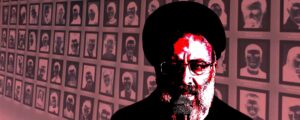
One of the central figures in Iran’s kleptocracy now heads its government.

In the Iranian legal system, no law provides for the transparency of presidential election campaign funding.

The former bonyad CEO’s network of “do-gooders” includes embezzlers and sex traffickers.
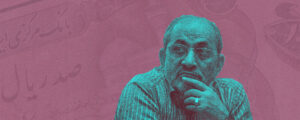
Eight scandals featuring the former bonyad exec’s business network.

The individuals and organizations behind one of Iran’s most secretive business networks.

Qasem Soleimani’s legacy lies not in his military prowess, but in the business empire he helped create.

The financial institutions behind one of Iran’s most secretive business networks.

An industrialist’s vast business network illuminates how Iran’s political right is beholden to clerical and military elites.
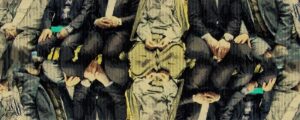
Conflicts of interest, nepotism, and preferential treatment pervade charity ownership among Iran’s ruling elite.
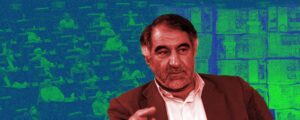
How a wealthy, unelected right-winger pulls the strings of his coalition.
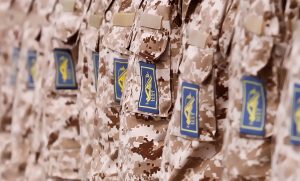
An airline executive with a long military record assumes an influential legislative post, expanding the Islamic Revolutionary Guard Corps’ political clout.
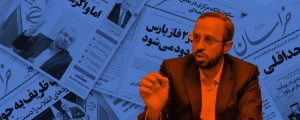
Parliament speaker Mohammad Qalibaf is filling top posts with friends and confederates such as Ahadian, an in-law of the supreme leader’s.